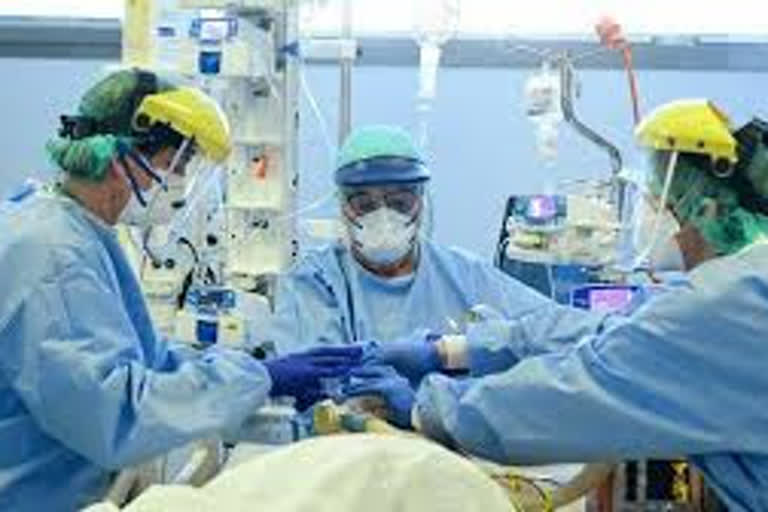New Delhi: Amid concern for elderly people with co-morbidities being prone to COVID-19 infections, the latest study paper of Indian Journal of Medical Research (IJMR) has revealed that young and asymptomatic people are also prone to the infectious disease.
The study that was conducted by Chandigarh based postgraduate institute of medical education and research said that majority of the patients with COVID-19 infections were young and asymptomatic.
"Fever was noted only in three-fourth of the patients and respiratory symptoms in half of them. Patients with co-morbidities were more vulnerable to complications," the study said.
The study says that COVID-19 pandemic emerged as a major public health emergency affecting healthcare services all over the world.
"It's essential to analyse the epidemiological and clinical characteristics of patients with COVID-19 in different parts of our country. This study highlights clinical experience in managing patients with C0VID-19 at a tertiary care centre in northern India," it said.
Clinical characteristics and outcomes of consecutive adults patients admitted to a tertiary care hospital at Chandigarh from April 1 to May 25 were studied.
"The diagnostics of SARS-CoV-2 infection was confirmed by real-time reverse transcriptase-polymerase chain reaction (RT PCR) on the throat and nasopharyngeal swabs," it said.
During the study period, 114 patients with SARS-CoV-2 infection were admitted.
The history of contact with Covid19 affected individuals was available in 75 (65.8) patients.
The maiden age of the patients was 33.5 years (13-79 years), and there were 66 (58 per cent males).
"Of the total enrolled patients, 48 (42 per cent) were symptomatic. The common presenting complaints were fever (37, 77 per cent), cough (26, 54 per cent) and shortness of breath (10, 20.8 per cent)," the findings of the study said.
It further said that 19 (17 per cent) patients had hypoxia (SpO<94 per cent) at presentation and 36 (31 per cent) had tachypnoea (RR>24). "34 (29.8 per cent) patients had comorbidity.
Age more than 60 years and presence of diabetes and hypertension were significantly associated with severe COVID-19 disease," it said.
The frequency of COVID-19 related myocardial injury among hospitalised patients varied from 7 to 28 per cent.
"At admission, 9.8 per cent of our patients had an elevated Trop T level, while pro-BNP (pg/ml) was higher than the normal range in 14.8 per cent of the patients," it said adding "COVID-19 is considered a hypercoagulable state, leading to venous thromboembolism in patients with severe disease."
Talking on the findings of the study, Dr Tamorish Kole, president of Asian Society for Emergency Medicine told ETV Bharat that majority of the patients with COVID-19 infections were young and asymptomatic and was admitted to hospital for other ailments.
"This calls for wider action and behavioural changes for ours towards Covid appropriate social responsibilities. Significantly, keeping in view the likelihood of an increase of COVID-19 cases during the ongoing festival season and winter months," said Dr Kole.
He emphasised that 15 behavioural practices are critical for winning this fight against COVID-19 pandemic.
It may be mentioned here that Union Health Ministry has recently issued a set of 15 points as an appropriate behaviour to fight COVID which includes maintaining physical distances, wear reusable face cover, discourage crowd, maintain respiratory hygiene among others.



